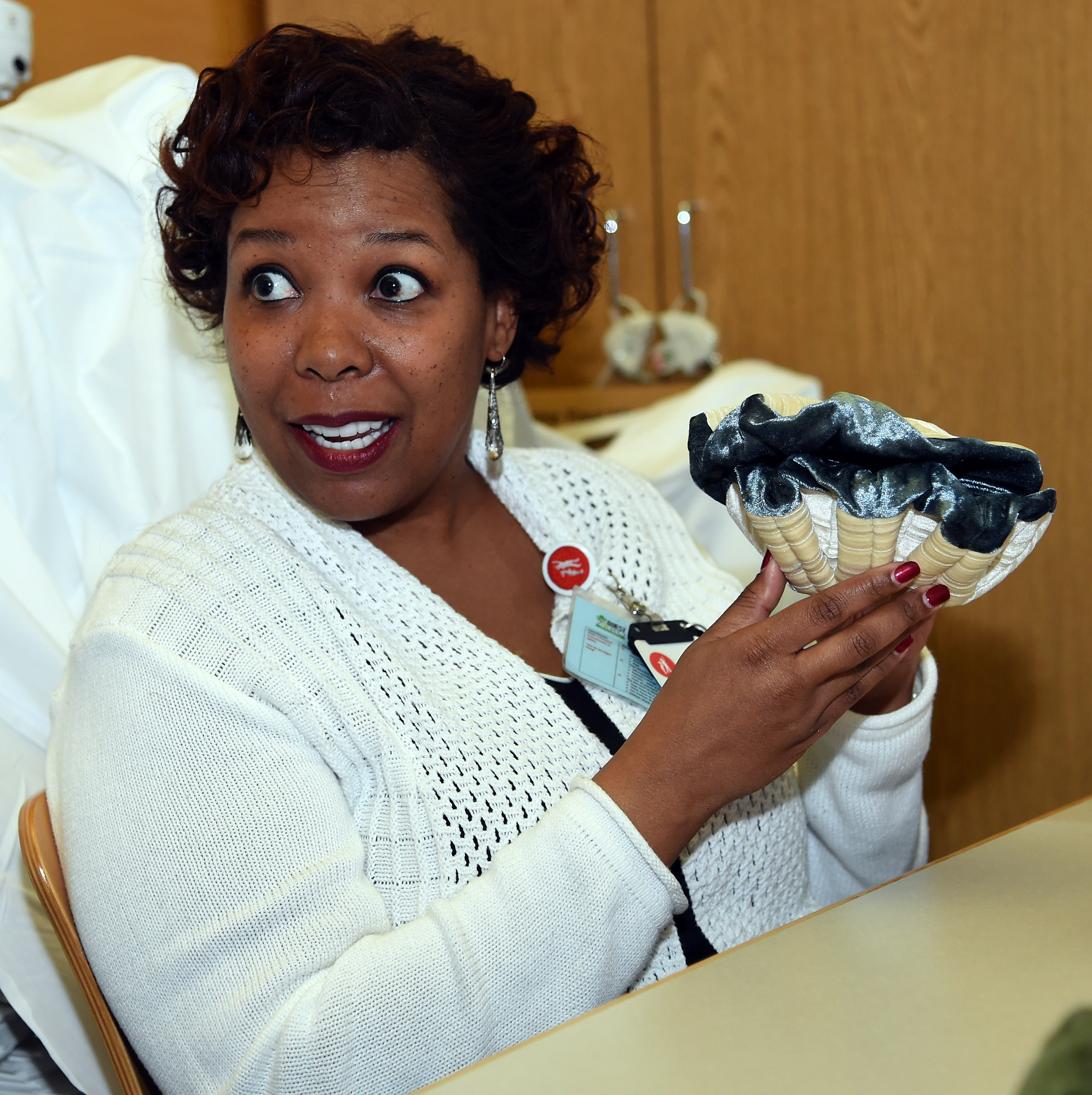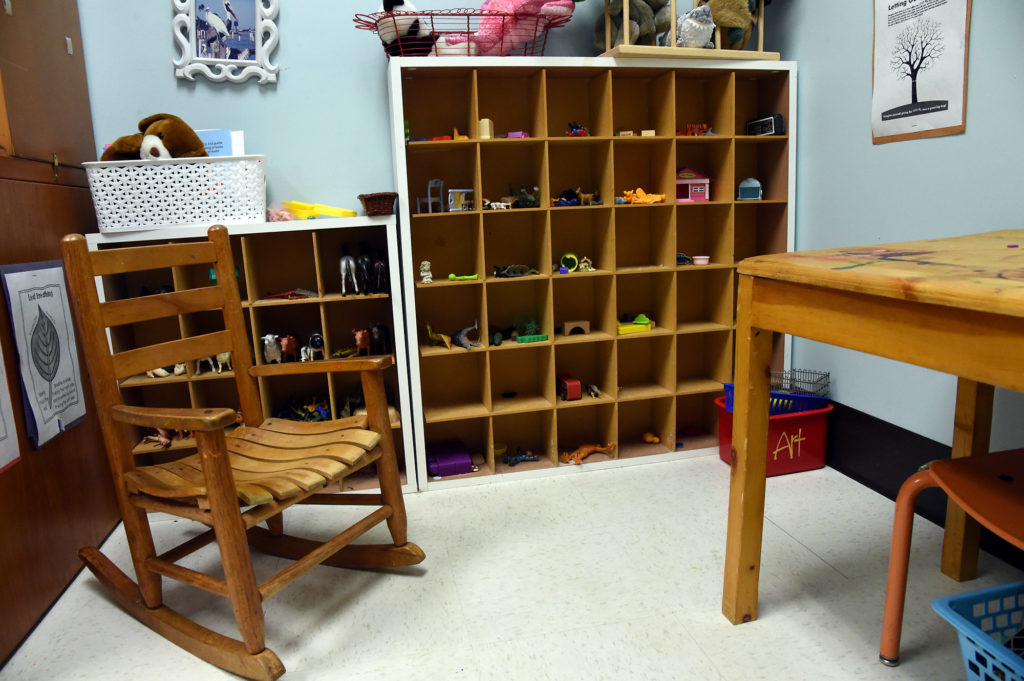
By Ariel Worthy
The Birmingham Times
Inside nearly every office of the CHIPS Center, there are board games, children’s toys, coloring books with crayons and colored pencils. And each item has a purpose.
Counselor Jo Davis explained the clam, fish, and turtle puppets on a table, starting with Sammy Clammy.
“Sammy Clammy encourages kids to keep secrets, and we tell them they need to tell, don’t keep secrets,” Davis said. “Sammy Clammy gives bad advice. He says to keep a secret.”
Davis then picked up an orange fish, Bubbles.
“Bubbles is telling,” she said. “Bubbles is smart. Bubbles knows the right answer all the time. Bubbles knows not to take any of the bait.”
Then she held up Shelly, the turtle puppet.
“Shelly can go inside her shell,” Davis said. “Shelly was hurt because she fell for the bait, but as time goes on she learns more, who to talk to, how to get the help she needs. The goal by the end of the presentation is to bring her out of her shell.”
The Children’s Hospital Intervention and Prevention Services, or CHIPS Center—a Children’s of Alabama outpatient facility established in 1995 to promote health and healing for those affected by suspected child abuse and neglect—is a place where young people who have experienced suspected abuse and their families can find support and hope.
April is National Child Abuse Prevention Month, during which groups advocate for children and help raise awareness of the epidemic of child abuse and neglect in America. The goal is to encourage social change and help children have healthier, happier, safer lives.

“Our children are typically not just dealing with sexual abuse,” said CHIPS Center Executive Director Debra Schneider. “They may have to deal with bullying at school. They may have lost a family member. … There’s always a sense of loss that our children deal with. What [Davis] and I do is [go to] the schools and empower them to tell, to get help.”
Schneider and Davis visit area schools throughout Jefferson, Shelby, and St. Clair counties to teach children about sexual abuse and how to speak up if they have had it happen to them.
“There wasn’t an identified team to work with sexual abuse,” Schneider said. “We realized that there’s not just a medical component to sexual abuse but a social component, as well. For child maltreatment, in general, a social component goes along with it.”
During school visits, students can ask important questions, Davis said. For example, “Children often ask if the abuse is a child’s fault. I reassure them that being abused is never because the child did something wrong.”
“I review with them that most people would never hurt a child, but they need to tell if they ever need help. I want them to know that there are people who can help keep children safe,” she said. “Typically, my presentations attempt to empower children with the knowledge of how to get help as needed.”
During these talks, younger children are engaged, open, and receptive to learning, Davis said.
“As students get older, they have more of an understanding of what I am going to be discussing,” she said. “They are often quiet while I present, but sometimes older students will come up to me after presentations to ask questions or speak to me individually.
“Most of the time, regardless of what age the students are, they voice appreciation that I came out to speak with them about ways of keeping their body safe and ways of getting help as needed.”
For additional information please contact 205-638-2751 to discuss CHIPS services with a CHIPS Team member.







